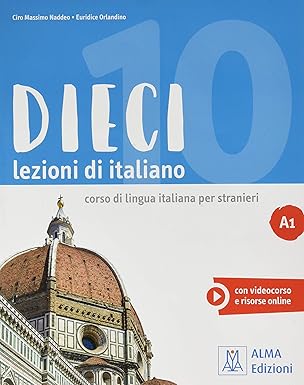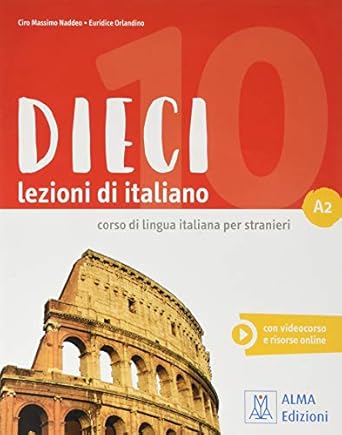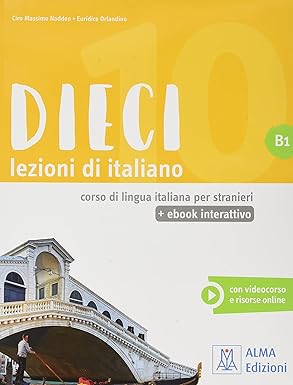
Italian Grammar Lessons: Indefinite adjectives refer to nouns without specifying their quality or quantity.
Italian Grammar Lessons: Indefinite Adjectives
Indefinite adjectives usually go before the noun (with which they must agree) and are not preceded by the definite article.
Table of The most used indefinite adjectives in Italian:
| Indefinite adjectives | Meaning |
| Alcun/ alcuno / alcun’ / alcuna / alcuni / alcune | Any/some |
| Qualche | Some |
| Ogni | Every |
| Ciascun / ciascuno/ ciascun’ / ciascuna | Each |
| Certo / certa / certi / certe | Certain |
| Tutto / tutta / tutti / tutte | All |
| Qualsiasi / Qualunque | Any / Anything |
| Nessun / nessuno / nessun’ / nessuna | Any |
Only alcuno, tutto, and certo have different forms for the masculine and feminine singular and for the masculine and feminine plural, ciascuno and nessuno have two forms masculine and feminine singular, the other indefinite adjectives are invariable.
1. Italian Grammar Lessons: Indefinite Adjective [Alcuno]
Alcuno is usually used in the plural to refer to people or objects. The singular is only used in negative sentences.
- Dobbiamo vedere alcuni amici.
- We have to see some friends.
- Ci sono alcune cose di cui vorrei parlare con te.
- There are some things I would like to talk about.
- Non ho alcun* dubbio di aver perso la decisione giusta.
- I have no doubt I missed the right decision.
*The forms of the singular of alcuno are like those of the indefinite article:
- alcun/alcuno for the masculine
- alcun’ / alcuna for the feminine.
2. Italian Grammar Lessons: Indefinite Adjective [Qualche]
Qualche is used in affirmative or interrogative sentences with the noun in the singular, to refer to people or objects.
- C’è qualche messaggio per me?
- Is there any massage for me?
- Ho qualche problema.
- I have some problems.
- C’è quanche domanda?
- Is there any question?
- Hai conosciuto qualche persone interessante?
- Have you met any interesting people?
3. Italian Grammar Lessons: Indefinite Adjective [Nessuno/Alcuno]
Nessuno or Alcuno are used in negative sentences.
- Non ho nessuna domanda da fare.
- I don’t have any questions to ask.
- Non c’è alcuna possibilità di successo.
- There is no chance of success.
4. Italian Grammar Lessons: Indefinite Adjective [Ogni]
Ogni is used to refer to people and objects, only in the singular or with names preceded by numbers.
- Vado in bibiloteca ogni settimana.
- I go to the library every week.
- Ogni impiegato a cui ci siamo rivolti è stato gentilissimo.
- Every employee we approached was most kind.
- L’autobus passa ogni 10 minuti.
- The bus runs every 10 minutes.
5. Italian Grammar Lessons: Indefinite Adjective [Ciascuno]
Ciascuno is used only with singular nouns, usually to refer to people.
The form ciascuno follow the rules of the indefinite article:
- Ciascun/ Ciascuno (Masculine)–
- Ciascun’ /ciascuna (Feminine).
- Paola ha fatto un regalo a ciascun’amica.
- Paola gave a gift to each friend.
- Ha assegnato un compito diverso a ciascuno studente.
- He assigned a different task to each student.
Amazon ad:
6. Indefinite Adjective: Tutto
Tutto has four forms, but in the singular, it is normally used only to refer to objects, while in the plural it is used for both people and objects.
Tutto must agree with the noun it refers to and is used with different structures:
A). Tutto + definite article + name.
- Ha letto tutto il libro in poche ore.
- He read the whole book in a few hours.
- Siamo rimasti a Vienna tutta la settimana.
- We stayed in Vienna all week.
- Tullio e io ci vediamo tutti i giorni.
- Tullio and I see each other every day.
- Sono venute tutte le persone che avevi invitato?
- Did all the people you had invited come?
B). Tutti/tutte + number + name/ adjective.
- Le sorelle di Felice sono tutte e tre infermiere.
- Felice’s sisters are all three nurses.
- Siete tutti e due simpatici.
- Both of you are nice.
C). Tutto + adjective.
- Lina ha un colloquio di lavoro e si è messa tutta elegante.
- Lina has a job interview and is all dressed up.
- Vanna e Lisa sono tornate a casa tutte contente.
- Vanna and Lisa came home all happy.
7. Indefinite Adjective: Qualsiasi/Qualunqune
Qualsiasi and Qualunqune have the same meaning, are used for people or object, and are used before or after the noun.
When qualsiasi and qualunqune are used before a noun, the noun must be in the singular and may be preceded by the indefinite article:
- Qualunque impiegato può aiutarmi.
- Any employee can help me.
- Accetterei qualunque lavoro.
- I would take any job.
- Qualsiasi domanda tu gli faccia*, ti risponderà.
- Any question you ask him, he will answer.
- Prenderò qualsiasi treno che parta* dopo le 9:30.
- I will take any train that leaves after 9:30 a.m.
- Per favore, portami (un) qualsiasi giornale di oggi.
- Please bring me any of today’s newspapers.
*The subjunctive is used after qualsiasi and qualunqune in dependent sentences.
When qualsiasi and qualunqune are used after the noun, the noun may be preceded by the indefinite article or by the preposition Di combined with the definite article (Del,della etc.).
- Ho preso in affitto un’auto qualunque.
- I rented an ordinary car.
- Per il suo matrimonio portava un vestito qualsiasi.
- For her wedding, she wore an ordinary dress.
- Accetterei un lavoro qualsiasi.
- I would take any job.
- Puoi fare la macedomia con della frutta qualunque.
- You can make Macedonia with any fruit.
- Non importa che tu metta gli scarponi: bastano delle scarpe* qualunque.
- It doesn’t matter if you wear boots: just any shoes will do.
*When the noun is preceded by the preposition Di it can be also plural.
8. Indefinite Adjective: Nessuno
Nessuno is used only in the singular, always before the noun, to refer to people or objects.
The forms of Nessuno are like those of the indefinite article:
- nessun / nessuno (masculine)
- nessun’ / nessuna (feminine).
If it is used before the verb it is not accompanied by the negative non.
- Nessun lavoro riesce a interessarlo.
- No job can interest him.
- Non ho incontrato nessuno studente.
- I did not meet any students.
- Non ho visto nessuna donna.
- I didn’t see any women.
- È molto sola: non ha nessun’amica.
- She is very lonely: she has no friends.
9. Indefinite Adjective: Certo
Certo/a is used in the masculine, feminine, singular, and plural forms. Certo/a refers to people and things.
In the singular, the indefinite article un, una must be placed first.
- C’è una certa persona che ha lasciato un messaggio per te.
- There is a certain person who left a message for you.
- Certe persone pretendono di fare quello che vogliono.
- Some people demand to do whatever they want.
- Certi giorni non ho voglia di alzarmi e di andare al lavoro.
- Some days I don’t feel like getting up and going to work.
10. Indefinite Adjective: Altro/Molto/Tanto/Poco/Troppo/Altrettanto
Altro/ molto, tanto, poco, troppo, and altettanto can be used as indefinite adjectives and they all have four forms:
| Sing.masculin | Plur.masculin | Sing.femin | Plur.femin |
| Altro | Altri | Altra | Altre |
| Molto | Molti | Molta | Molte |
| Tanto | Tanti | Tanta | Tante |
| Poco | Pochi | Poca | Poche |
| Troppo | Troppi | Troppa | Troppe |
| Altrettanto | Altrttanti | Altrttanta | Altrttante |
- C’è ancora molto tempo prima che l’ufficio apra.
- There is still a long time before the office opens.
- Ti servono altri soldi?
- Do you need more money?
- Ho preso tre bottiglie di acqua e altrettante lattine di aranciata.
- I took three bottles of water and as many cans of orange soda.


